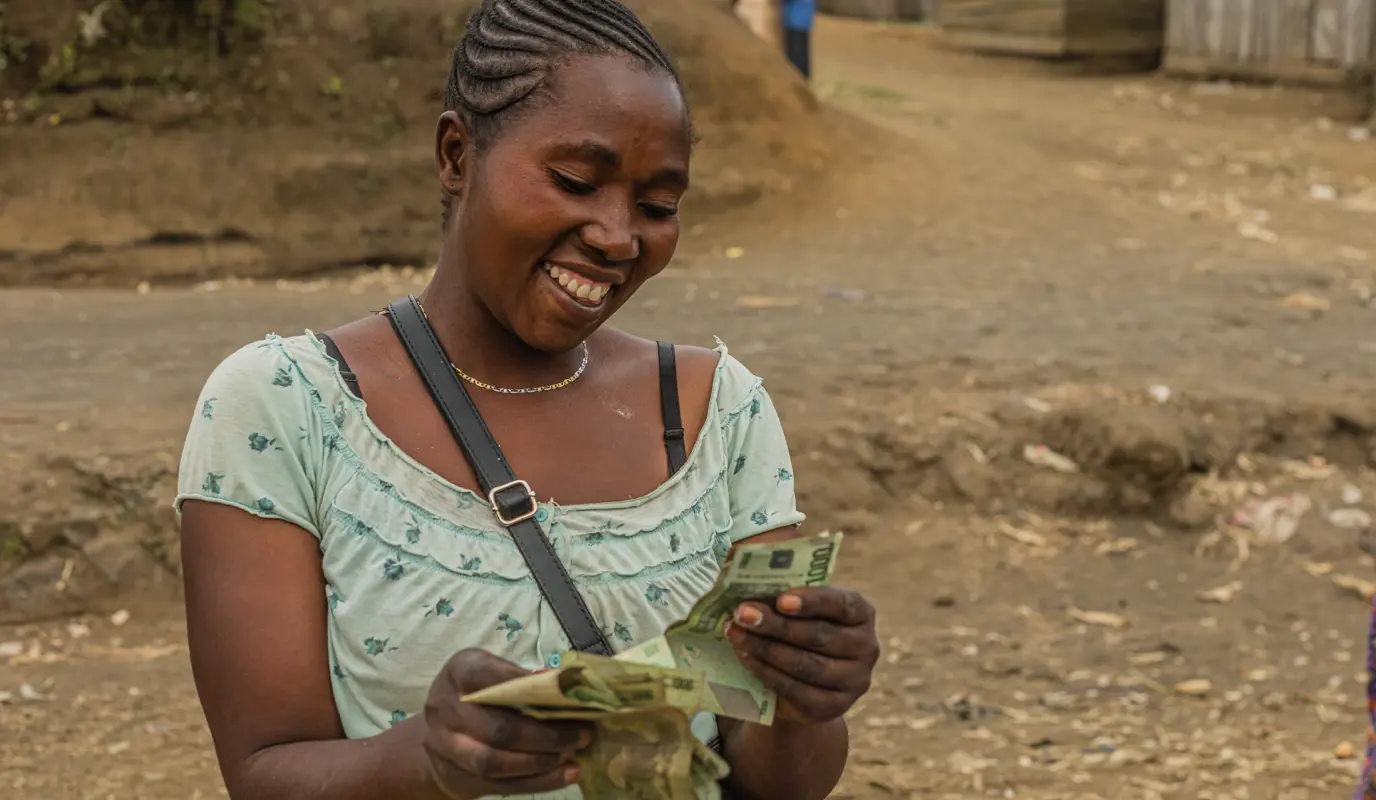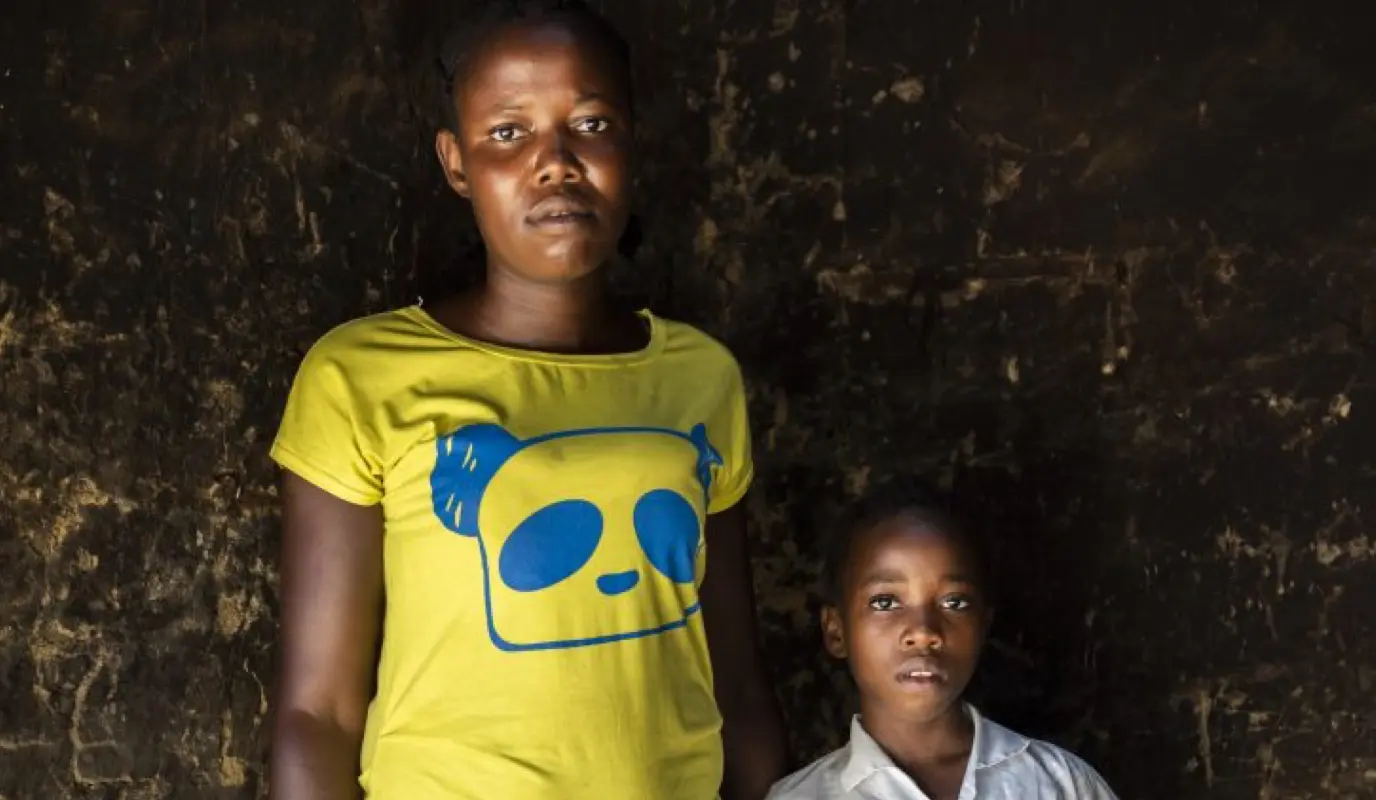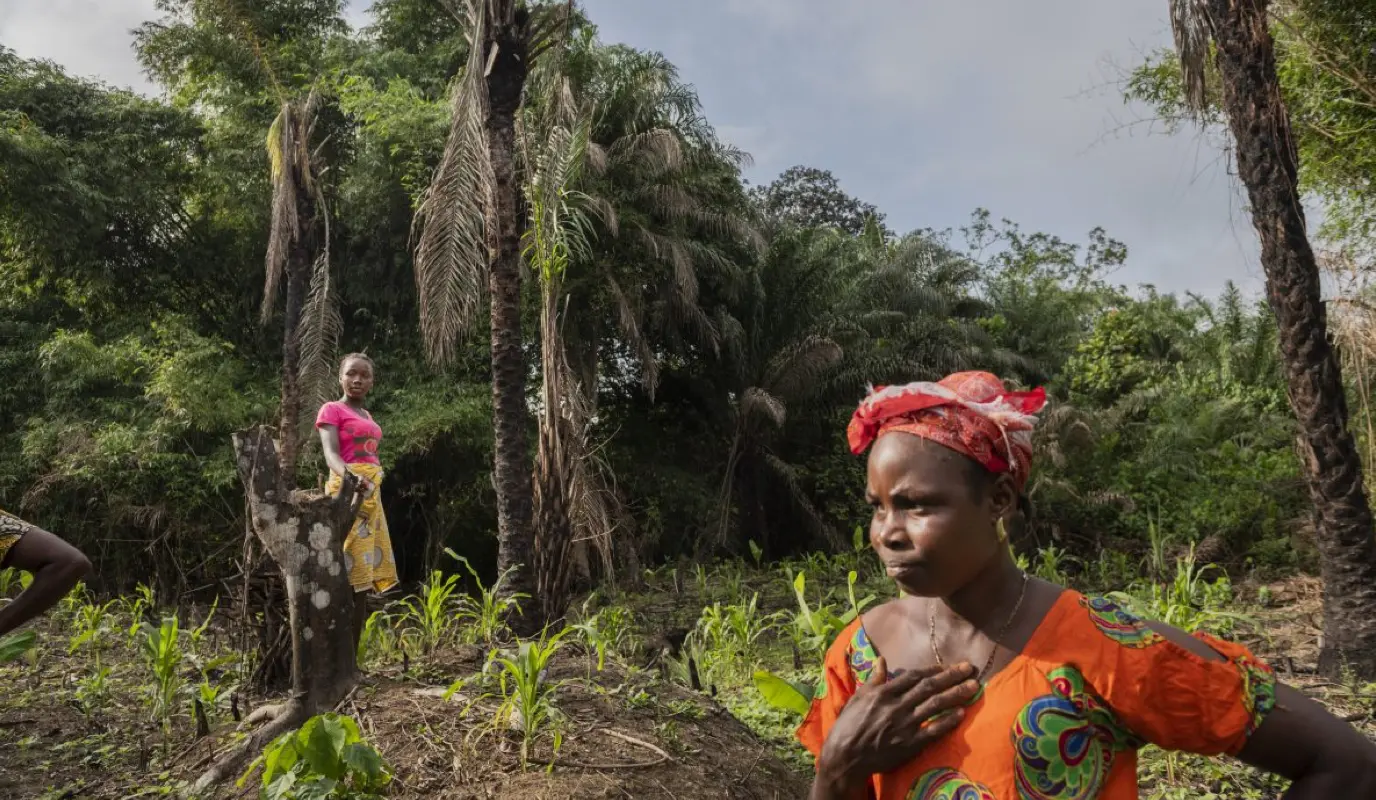News
Meet the women building careers in Kenya with desert salt
Meet the women accelerating the progress of gender equality in Kenya through their local VSLA and desert salt.
Read MoreIn the communities where Concern Worldwide operates, continuous armed conflict in many parts of the country, disease outbreaks and high levels of food insecurity are all key causes of poverty. But that changes with VSLAs. For Concern community members, these microloans go a long way: They not only break the cycle of poverty, but build thriving livelihoods that turn the hope for a more sustainable, self-sufficient life into a reality.
This is especially true for Sifa Consolata, a widow caring for her four children in Burungu, the North Kivu province of Democratic Republic of Congo.
“Before Concern gave me this money, my life was difficult,” she says. “I was looking for a job to feed my children. If Concern hadn’t given me this money, I would have continued to work for people to make no more than one thousand francs, planting fruit to see if they harvest and see how to raise my children with that.”

When Sifa joined the VSLA, with her microloan of $20 to start, she bought land, maize flour, onions, and olive oil. She began cultivating the fields and selling her harvests. But the financial gain and reliant income isn’t the only benefit of the microloan. It’s the community of practice and training that accompany the loan which make it possible for members like Sifa to not merely have a job, but to build a livelihood.
“The VSLA taught us how to manage the little money that we earn. They taught us how to do business, how to attract clients and buy merchandise. They taught us how to maintain this as well. I put these lessons in practice because it might be that I need money and I go directly to AVEC for a loan. And with this money I can take care of my children and make sure they are growing, but also it allows me to preserve my self-esteem so that no one makes fun of me.”
This is also where inequality meets risk: Often it’s the most marginalized people in a community who are furthest behind, and have fewer options for getting cash. They are also more vulnerable to the impacts of a setback, whether a personal setback or a larger shock such as a natural disaster or a pandemic. In areas where the risk for such setbacks is high, this becomes a recipe for disaster.

What would happen, then, if the people furthest behind had the resources they needed to be on equal financial footing with those furthest ahead? For starters, they would be able to build equity. They could also offset some of the risk that comes with having no financial reserves and facing the many unknowns that can lead to a financial setback.
That’s where Village Savings and Loans Associations (VSLAs) come in.
Conceived in 1991 by Concern's peer and regular partner CARE International, VSLAs allow members to save money, build community relations, and access loans and emergency insurance. By pooling their savings and self-managing the loan distributions, VSLAs help their community members achieve economic stability in a sustainable, community-based way.
Part of the success of VSLAs over the last 30 years lies in how simple and effective the program is. Each Association is made up of a small team of members who meet every week and buy shares of their group, continually investing a little bit of their income and pooling it with their friends and neighbors to create a sum greater than its parts.
Members can take out loans as needed, and use their savings as collateral (versus the alternative of selling a major asset or cutting down on household necessities). The only assets each group needs are a lockable cash box and a notebook for keeping track of loans. Yet, for such a low investment, the program yields high returns.
For Kenya's women-formed Chalbi Salt Self Help Group, each member joined by contributing 1,000 Kenyan Shillings (about $9.00). When the group splits loans between members, those members use these funds to invest in profit-making activities. Upon repaying the loan, they add a bit more to cover the interest, which is then redistributed to the other group members, creating a profit cycle. Not only does this group’s investments help their individual livelihoods, but it benefits their collective community for generations: One of the things the Chalbi Salt group invests in locally is the education of their community’s girls.
That’s one way the money can be used and distributed, and it’s also this flexibility that makes the VSLA model a powerful method of microfinancing. But the power of VSLAs isn’t just their monetary value, it’s their socially-transformative nature within communities.
With 2.7 billion women legally restricted from having the same choice of jobs as men and 34 million girls currently out of school, VSLAs offer women the resources they need to earn a living, manage crises, develop skills, and build and retain assets of their own.
Old Lady Jimmy’s family is one of the 100 or so that form the village of Wrobone Town in Liberia’s Rivercess county. The 27-year-old mother of two is a member of her local mother’s group and VSLA, a potent combination for the women in Wrobone Town. When we spoke with her in 2019, she was expecting her third child and was excited about what she had learned from the mother’s group training sessions. She’s also made use of her VSLA to make improvements on her home, particularly the leaky roof, and to start up a small business, selling frozen food in the community and nearby villages.

But Old Lady points to her parents as another key success story for the Wrobone Town VSLA, which helped them to weather a family crisis. Joseph (49) and Anna Morris (52) had worked hard to cultivate a small plot of land, which they use to grow dual-variety rice, corn, peppers, okra, eggplant, and cassava. It’s tough work, but as Anna explained, “Unless we borrow money or people give to us, we just don’t have the means.”
The couple were dealt a blow when Joseph was diagnosed with kidney disease a few years ago. “He was the backbone of the family and we experienced difficulties,” Anna said. “The doctor told him not to do any major work. That meant we all had to do it,” she said, referring to herself and her seven children. Old Lady stepped in to help her parents, taking out a loan from the VSLA and hiring workers to help with cultivating her parents’ land, preventing an already-difficult situation from becoming an even greater hardship. Her parents had crops that year, her father was able to recover, and her mother wasn’t left to handle everything on her own (and a few of Old Lady’s neighbors enjoyed some added income that season).

It’s the sort of solution that leaves Old Lady optimistic about her and her own family’s future: “The children will grow up healthy and content,” she said, adding that her eldest daughter, Orphelia, had just started primary school. “Writing is her favorite thing.”